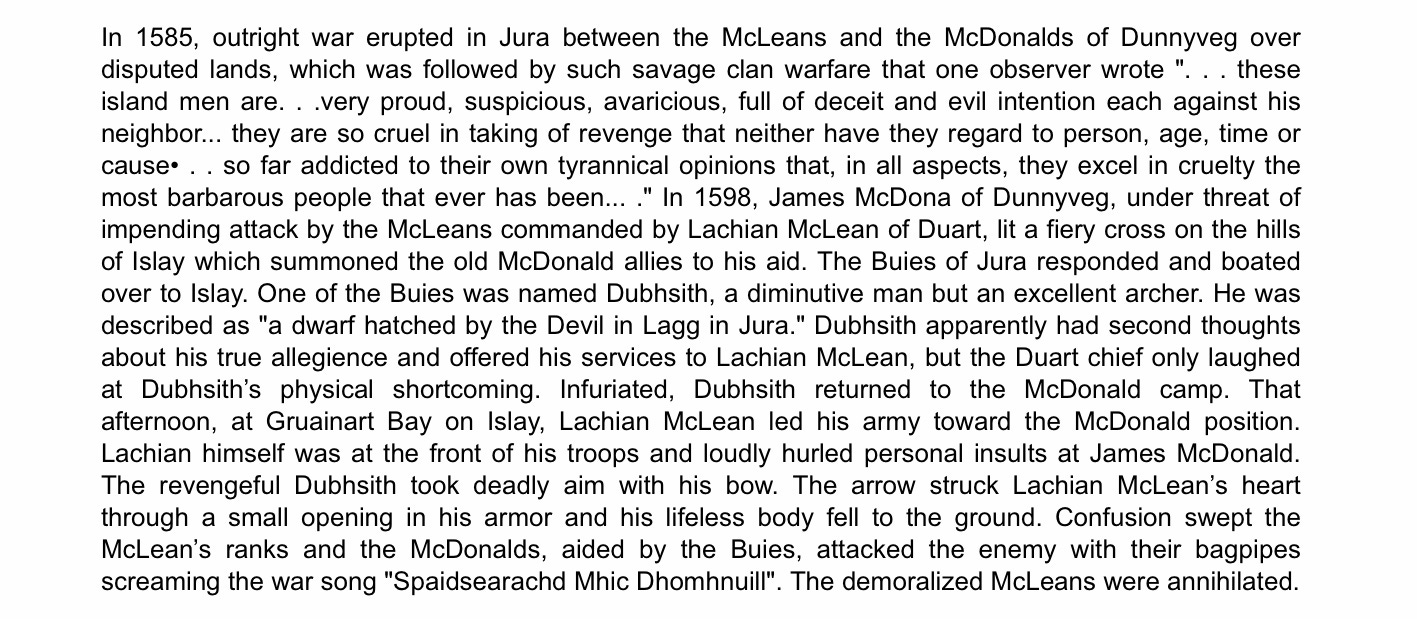On rage
And on harnessing it
Anyone who knew me as a child knows that I have a terrible temper. In Grade 3 or 4, we had to build a bridge out of pegs. My friend “C” and I were in a team. We were clever, opinionated, and argumentative. Our bridge was never completed. I am sorry to admit that this was because we could not agree on a method of construction. Eventually, I smashed our bridge over C’s head, and it splintered into pieces.1 For anyone who knows me as an adult, this might come as a surprise. I seem so friendly! This is because I keep my temper on an extremely short leash.
Sometimes—rarely—it still comes out. Once, a colleague surprised a robber in her office, next door to mine. He sounded like he was threatening her, and she’s disabled. I discovered that ‘seeing red’ is not just a figure of speech. My vision went entirely red, and I sprang at the robber. I am aware that this was not a wise move, particularly if one is a slightly plump, unfit, middle-aged female academic with cerebral palsy. In the moment, this did not matter. The robber fled in terror, and I ran after him, screaming threats. Usually I can’t run very well, or at all. My left leg drags, so I caught my left foot on a chair, tripped over, and the robber escaped. While my legs are weak, my upper body strength is more like a man’s than a woman’s. The robber had a lucky escape.

I began to wonder if I have a touch of Norse Berserker rage. My fascinating mixed background includes Scots ancestors, who came to Australia from the Island of Colonsay, after the Highland Clearances. There were also family branches on Jura and Islay. The Inner Hebrides had a lot of Norse settlement, and many of the place names show an Old Norse influence. To get a sense of one of my distant relatives, here’s the tale of Dubhsith Buie (from this site):
Some of our ancestors were Buies (anglicised as ‘Bowie’). My mother read this and said, “Dubhsith reminds me of my Poppa, a short angry man who was an excellent shot.”2
Quite a few of my decisions in life have been spurred by rage, including some of my academic articles.3 I hate unfairness. I suspect this instinct is pre-human, as illustrated by the experiment with monkeys, filmed below. Evidently capuchin monkeys share my preference for grapes over cucumber. If one monkey gets grapes while the other gets cucumber for completing the same task, the unlucky monkey who gets cucumber is outraged.
The monkey who got the cucumber is so angry! He or she even throws the cucumber at the researcher: he or she would rather have nothing, than suffer cucumber when another has grapes.
I’ve had conversations with people lately where it has been suggested to me that if you have suffered unfairness, you should be allowed to be enraged. I understand this. It’s a basic instinct.
However, everyone seems to be enraged these days, and social media fuels it. It makes it hard to have constructive discussions.
I have learned—both as a lawyer and a person who has to manage her temper—that it’s not good to make decisions while enraged. Was my decision to chase the robber good? No. While it might be understandable—and it came from my creditable desire to protect a vulnerable colleague—it was a bad decision (although I don’t think there was much rational decision-making process occurring). I could have been attacked by the robber. Or, more likely, in my enraged state, I could have harmed him. ‘Understandable’ is different from ‘legally excusable’.
Rage is a natural human emotion. And it is important at times to let rage flow through you; to recognise that you are responding to what you perceive as unfairness and injustice. But before making any decision, you should let the rage pass. It’s difficult to have a constructive discussion when you’re enraged.
As I’ve said before, I have reasons to rail against the unfairness of my life. I choose not to do this. I am not saying that people should ignore the wrongs of the past. It’s important to acknowledge what has occurred, but let go of the rage, before I decide what to do about it. Otherwise there is a risk I might lash out at the wrong person, or act disproportionately or unfairly in turn. This is why the law cautions against “self-help”, namely people taking the law into their own hands. When people take the law into their own hands, things get out of control.
Let’s take a favourite old chestnut of mine to illustrate, a neighbourhood dispute. The case of R v MacArthur from early colonial Australia provides a salutary warning.4 John Macarthur—more famous to Australians as the man who popularised the merino sheep as featured on the old $2 note—was appointed a magistrate. However, the former Rum Corps officer was notoriously tempestuous, and not temperamentally suited to the office. Macarthur was asked to resolve a dispute between two landowners named Holwell and Raine over who had the better right to water. Instead of resolving the dispute, he purportedly encouraged his associates to forcibly enter Raine’s land and fill up a trench which was alleged to be diverting water from Holwell’s land. This caused a breach of the peace, and the constables had to be called in to quell the ensuing fight. Macarthur was charged with riot. The New South Wales Supreme Court lamented that ‘in a case in which there was obviously a question of right to be tried, the more judicious course should have been resorted to, of trying that question by civil action, instead of resorting to violent measures’.
Although the charge of riot against Macarthur was dismissed, costs were ordered against him. He was outraged, and attempted to impeach the New South Wales Supreme Court. Unsurprisingly, he was unsuccessful.
We do not necessarily make fair or good decisions when we lose our temper, or when we are driven by rage. Even if we have good intentions, or a just reason for our rage, we can make bad decisions. In fact, decisions made in a temper might make everything worse. This is why court proceedings generally take the rage out. My children decry law as incredibly boring, but I see this as an indicator that the system is working. The wrong is able to be acknowledged, with the rage (and the pitchforks) removed.
We must be careful how we deal with victims. As a remedies lawyer, I believe it’s necessary to recognise wrongs, and to offer recompense, but it’s also important recognise that this doesn’t give a victim carte blanche to behave unreasonably. Our legal system reflects this. Self-help is allowed in exceptional circumstances, but only where it’s reasonable and proportionate.5
In a recent study, Israeli academics noted that a focus on collective and individual victimhood gives rise to a need for recognition of wrongdoing, moral elitism (a belief that one is superior because one is a victim), lack of empathy towards those viewed as oppressors, and rumination on past wrongs.6 In other words, a focus on past wrongs produces more resentment and unhappiness, and paradoxically, the wrong is not healed. This will not surprise any litigator who has come across a ‘querulous litigant’, someone obsessed by his or her grievance.
My advice, as a tempestuous soul, is to harness your rage. Don’t ignore it or suppress it. Recognise it, interrogate it, work out what injustice is producing your rage. But do not let it drive you, and do not let yourself be guided by those who let rage drive them. Rage can be productive—sometimes it can spur you to take necessary actions—but it seldom produces good decisions in the heat of the moment. It can curdle the soul if it’s held too close.
Sorry, C, I still feel really guilty about that, forty years later, but I also still think I was right. For other readers, C’s and my friendship survived this incident, and we’re still friends now, but we still do not agree on the way we should have structured the peg bridge, and that’s okay. Just don’t mention the bridge.
My mother and my sister were also the only two people who entirely understood why I felt compelled to chase the robber, and considered that they might have done the same thing. The spirit of Dubhsith lives on.
The other academic articles, books and chapters are spurred by far more amiable compulsions, including curiosity and a desire to explain things clearly to students and other interested parties.
(1828) Sel Case (Dowling) 882; [1828] NSWSC 6, described in N Witzleb, E Bant, S Degeling and K Barker, Remedies: Commentary and Materials (7th edn, LBC 2020) [2.20] Note 1.
K Barnett and S Harder, Remedies in Australian Private Law (2nd edn, CUP, 2018) Ch 13.
R Gabay, B Hameiri, T Rubel-Lifschitz, A Nadler, ‘The tendency for interpersonal victimhood: The personality construct and its consequences’ (2020) 165 Personality and Individual Differences 110134 https://doi.org/10.1016/j.paid.2020.110134. (https://www.sciencedirect.com/science/article/pii/S0191886920303238)



This discourse on temper is very temperate and well done.
I have difficulty controlling my rage, which is mine to work on. But part of that difficulty is what I perceive to be the societal injunction against anger. I perceive that the default reaction to expressed anger is "you have a problem." That strikes me as fundamentally unfair, and it provokes even more anger.
I want to feed my anger after getting such a response, because it reflects my long experiences of irrational and selfish injustice I was expected to take (and expected to actually, literally smile about) at home as a child.
Thank you for making sure to note that anger and rage are not per se immoral or unjustified.
I'm willing to discuss with people the individual responsibility to control anger, but *only* when the other party recognizes that anger and rage are not "deranged" necessarily. If they won't meet me there, I won't meet them either.
That story you found about one of your ancestors is amazing, and that incident with the robber terrifying! I do wonder how many of our ancestor's traits get passed down to us at times.